Verify WhatsApp typically involves confirming the legitimacy and authenticity of a WhatsApp account using a One-Time Password (OTP).
How to Setup
1 Go to Workspace > Workflows, and click on the flow created for Verify WhatsApp. If you need understanding in creating a workflow, refer to the step-by-step guide here.
2 Hover over the plus (+) symbol and select Workflow. From the list, click Verify WhatsApp to add it.
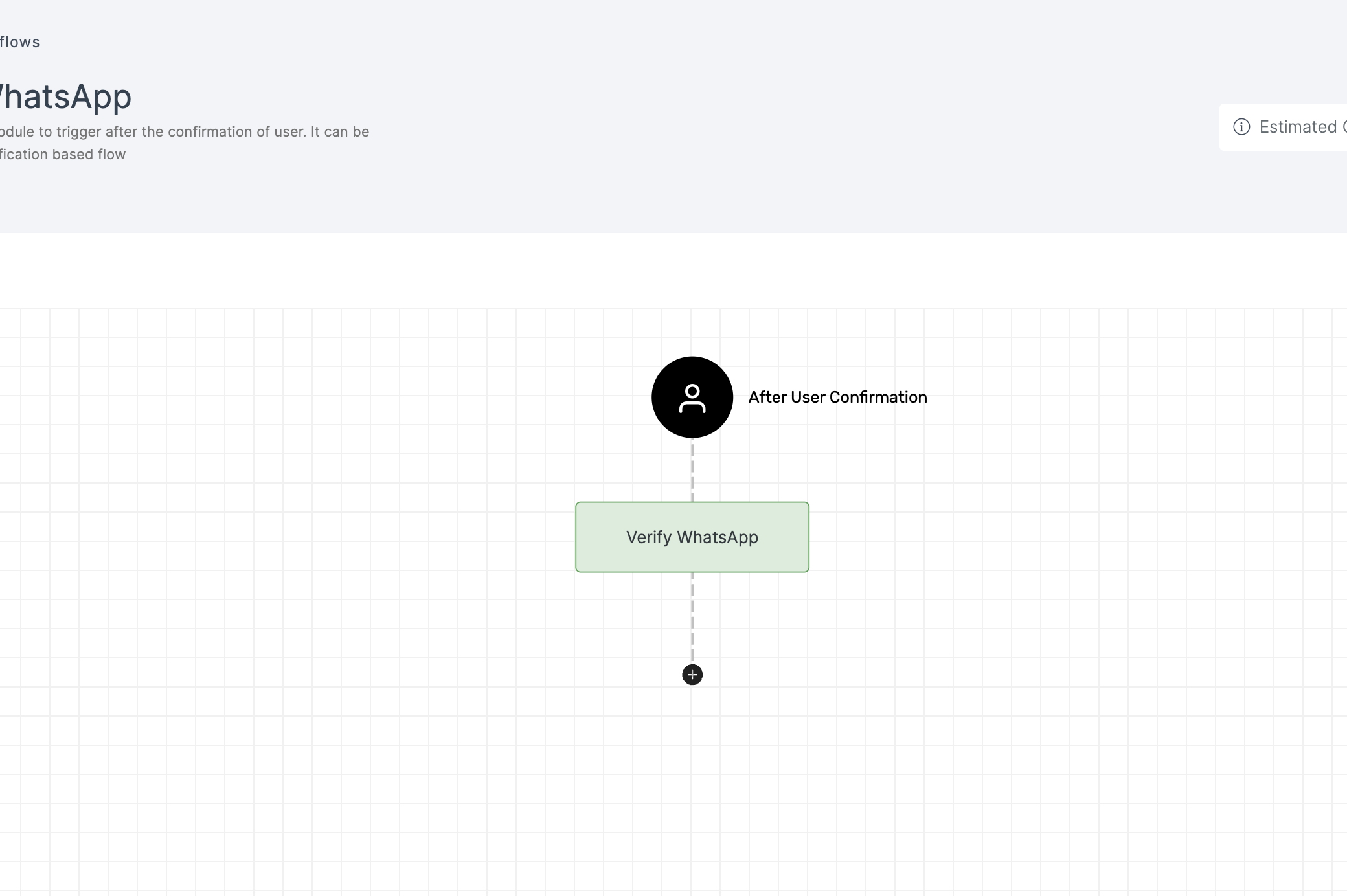
3 Click on the newly added workflow, then select the General tab to customize your preferences.
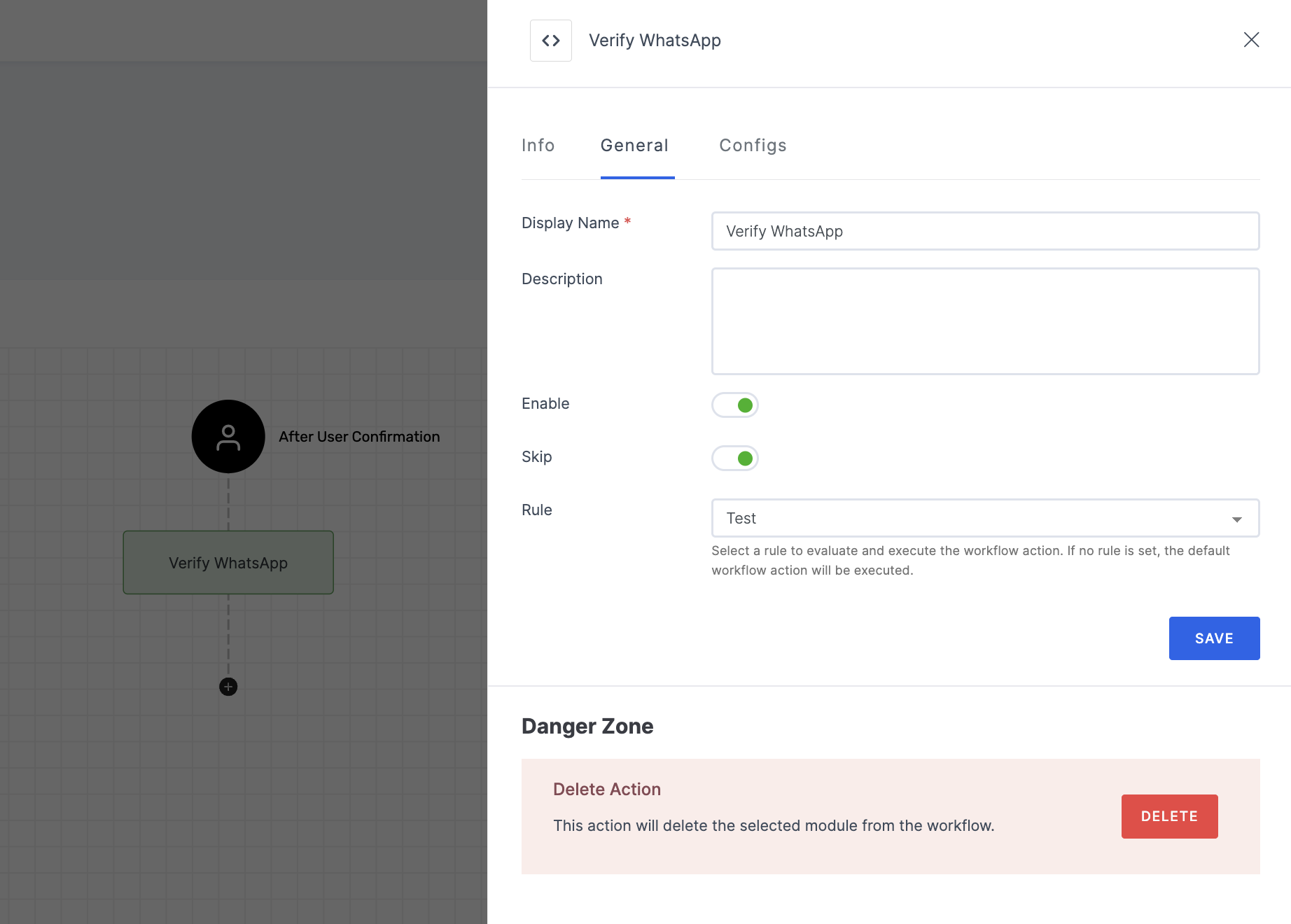
Manage General
(*) Indicates an action to be mandatory.
| Name | Description |
|---|---|
| Display Name* | Set a name to the workflow for easy identification. |
| Description | Summarize the purpose and functionality of this workflow module. |
| Enable | This toggle is enabled by default. When enabled, the particular workflow module begins its execution. Conversely, if disabled, the workflow module remains inactive and won't proceed. |
| Skip | Allows the user to skip this specific workflow module during execution. When selected, it provides an option to bypass the particular workflow without affecting other modules in the sequence. |
| Rule | This determines the criteria for triggering the particular workflow module. When the selected rule is evaluated, and is satisfied, the workflow proceeds as provided. If not, the workflow will not be executed. Note: If no rules are set, the workflow defaults to its standard action without any rule. For more information about the rules, refer here. |
4 Then, click on the Configs tab to set the necessary configurations.
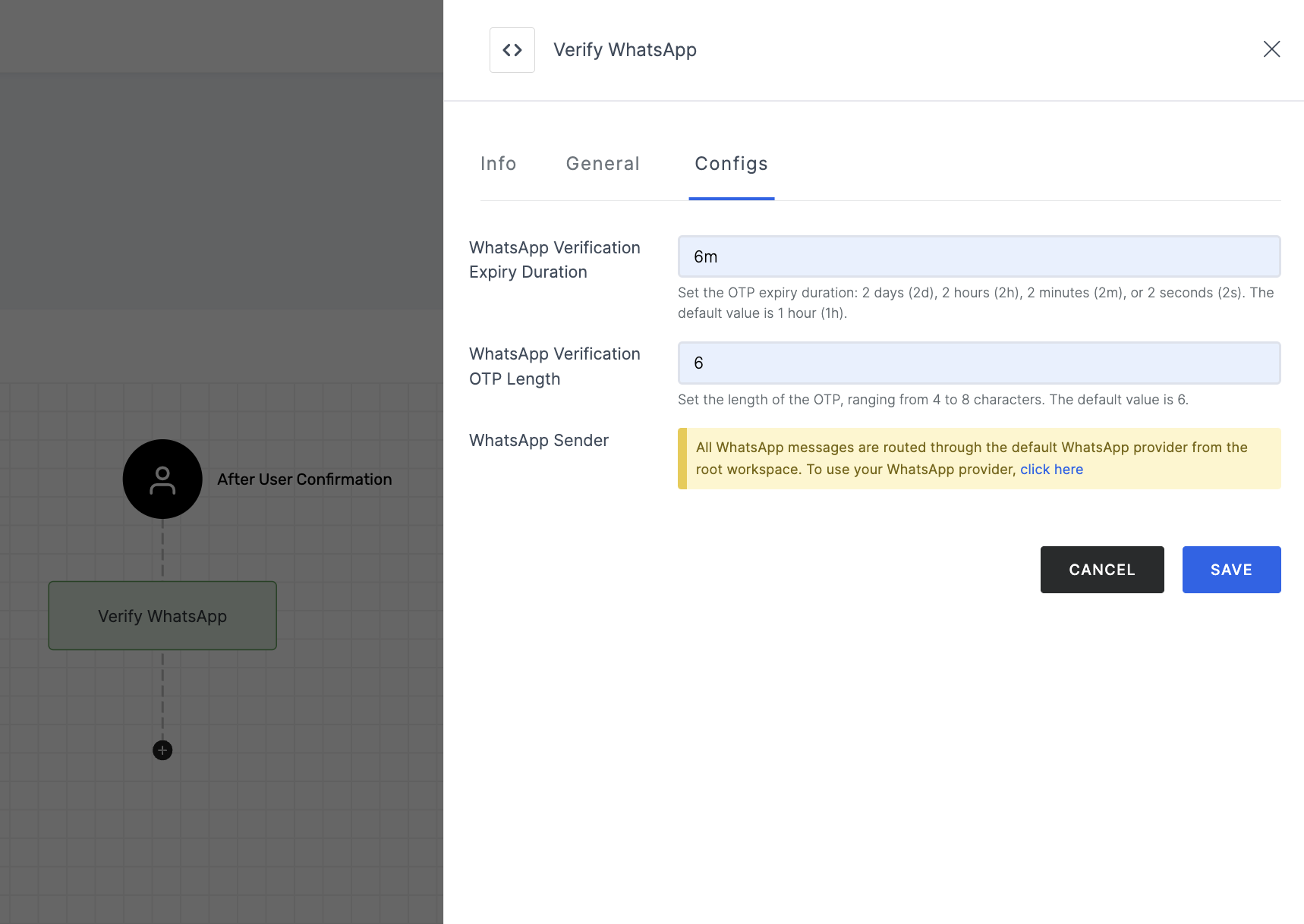
Manage Configs
| Name | Description |
|---|---|
| WhatsApp Verification Expiry Duration | This setting allows you to specify the duration for which the WhatsApp verification link or OTP (One-Time Password) remains valid. After this period, the verification process expires and users will need to request a new verification. |
| WhatsApp Verification OTP Length | You can configure the length of the OTP (One-Time Password) used for email verification. The length can be set within the range of 4 to 8 digits, with a default value of 6 digits. |
| WhatsApp Sender | By default, all sms are sent through the default WhatsApp Provider configured for the system. If you prefer to use your own WhatsApp Provider, instructions on how to configure this can be found here. |
5 After you've configured everything needed, click on the SAVE button.
6 Proceed to attach the workflow to the relevant application for execution. Refer to instructions on how to attach a workflow to an application here.
Expected Result
Based on the provided configuration, the information that will be fetched for WhatsApp includes the following parameters:
| Name | Description |
|---|---|
whatsapp_number_region | The country code associated with the WhatsApp number. |
pin | The PIN used in the verification process. |
whatsapp_number_verified_at | Timestamp (in Unix epoch format) indicating when the WhatsApp number verification was done. |
whatsapp_number_verified | This denotes whether the WhatsApp number has been successfully verified. The value will be "True" if the verification is successfully completed and "False" if it is not. |
whatsapp_number | The actual WhatsApp number being verified. |
The response received will include the accurate information mentioned above. Note that, the response values can vary depending on the specific workflow modules.
How it Works
1 Launch Postman or your preferred API tool and execute the flow by configuring the suitable Method, URL, and Body settings. If you're seeking guidance on how to perform these actions, see here.
2 Upon initiating the API call, a verification request will be sent to your configured Verification Way settings.
3 Based on the request, execute the flow in an incognito browser and follow the prompts to complete the verification process.
4 Begin by providing the WhatsApp Phone Number and click on Submit.
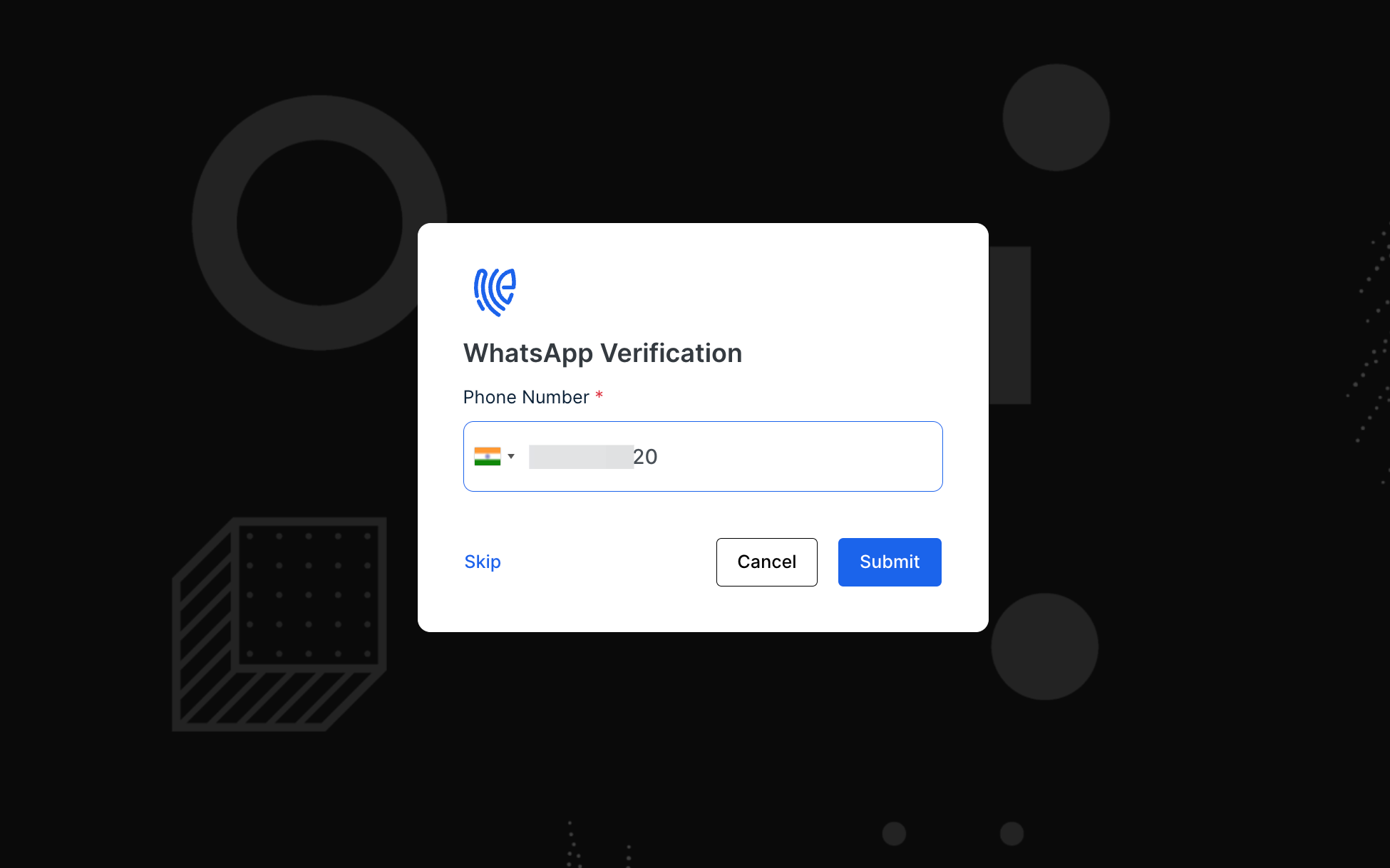
5 An email containing an OTP will be sent to the WhatsApp number provided above. Please input the OTP and click on Submit to proceed.
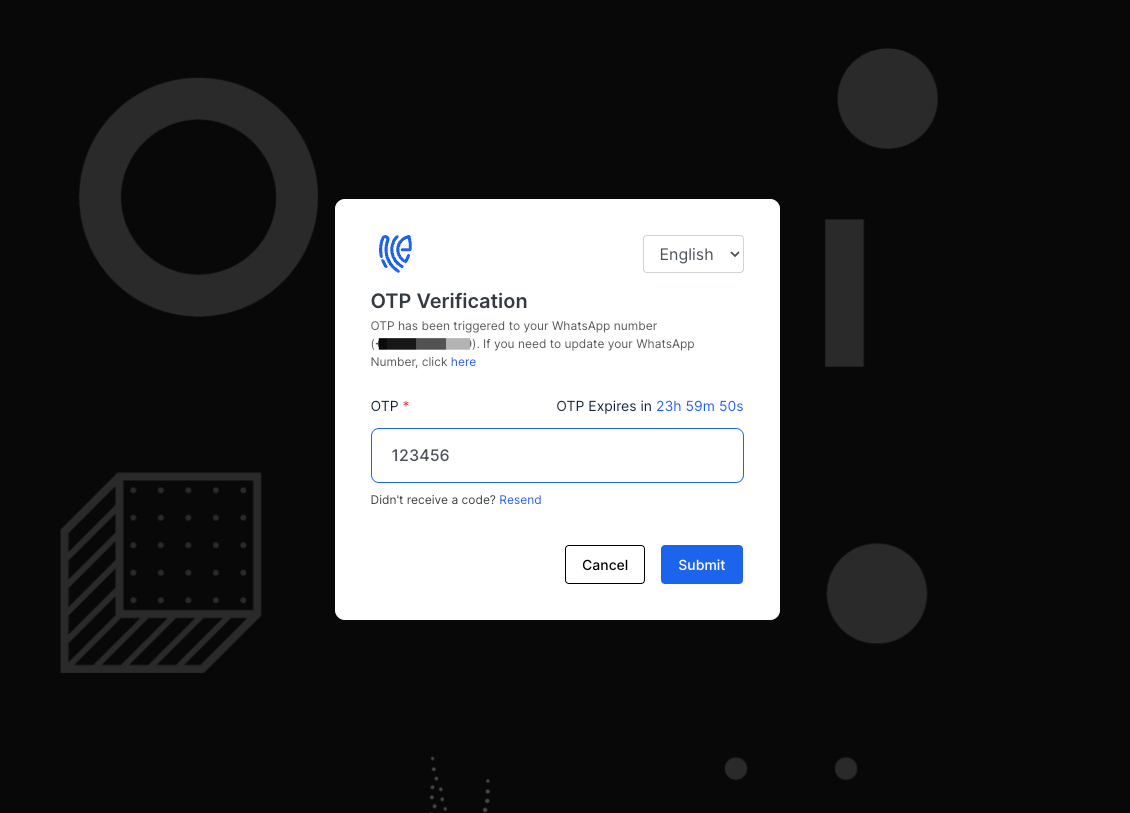
6 The verification process will be completed only if the entered data is valid.
If "force onboarding" is enabled in the API request, all users, regardless of status, will be directed to the onboarding flow first, followed by the verification flow if configured.
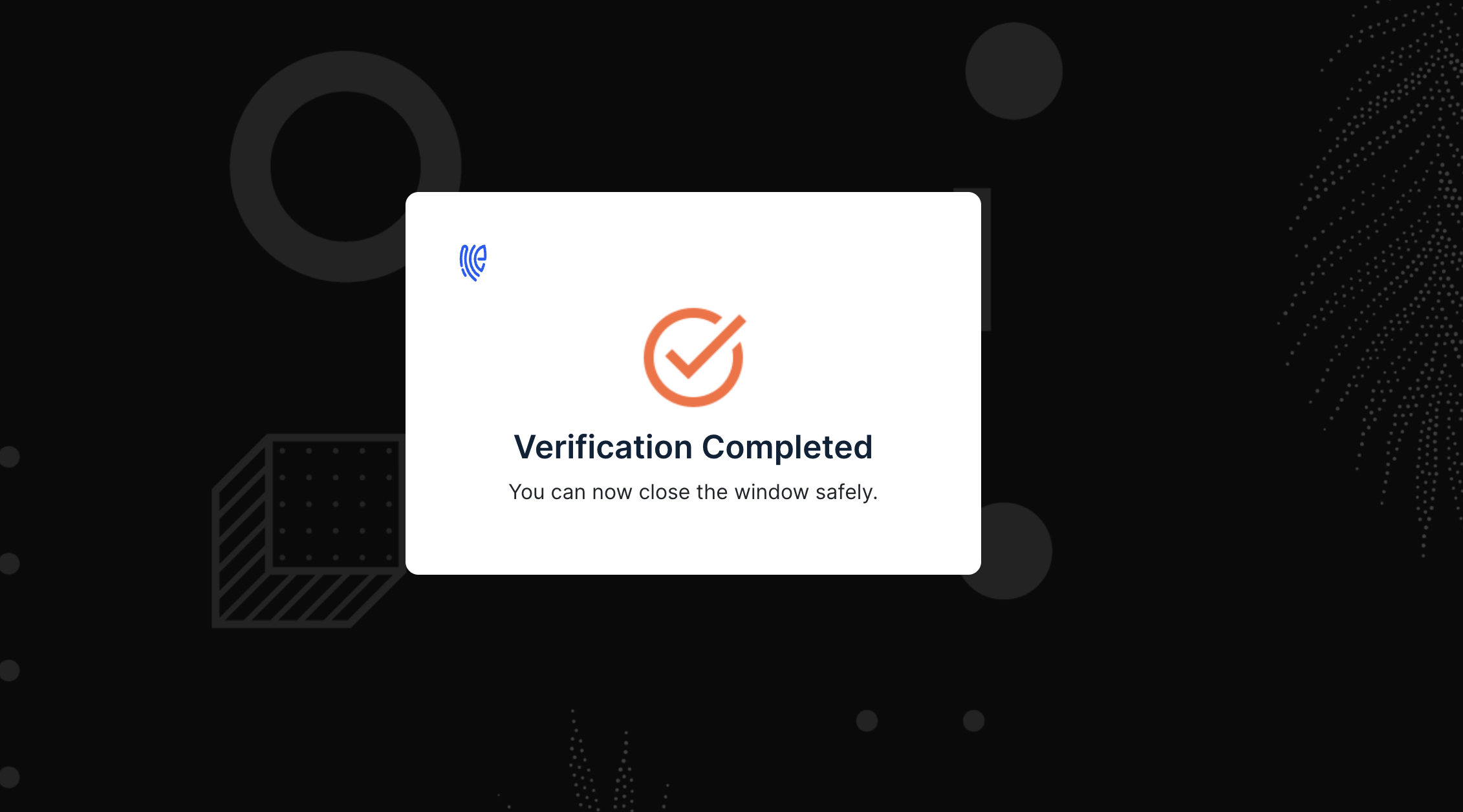
7 The response can differ depending on the chosen Verification Way and Notification Way configurations. To know more, see here.
8 Here is a sample response for Verify WhatApp:
{
"request_id":"xxxxxxxx-xxxx-xxxx-xxxx-xxxxxxxx",
"workflow": "verification",
"user_id": "mark@gmail.com",
"whatsapp_number_region" : "in",
"whatsapp_number_verified_at": "1719569072",
"pin": "xxxx",
"whatsapp_number_verified": "true/false",
"whatsapp_number" : "83xxxxxxxx"
}